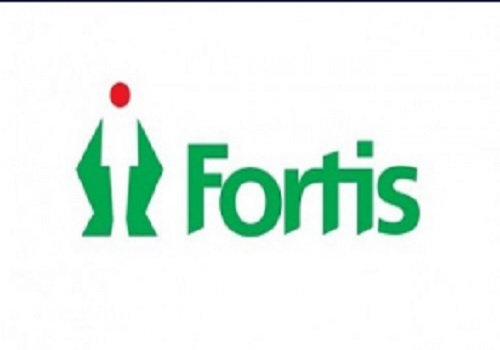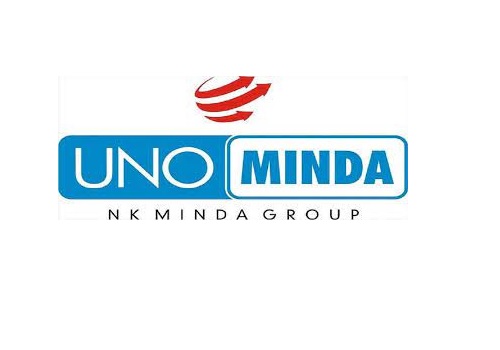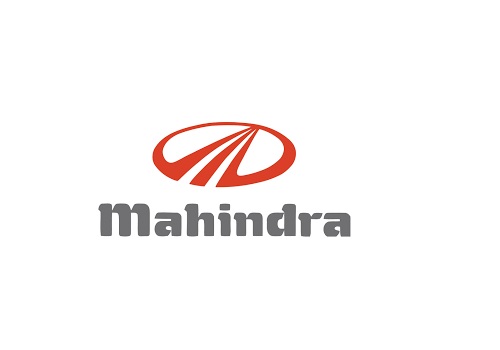Jupiter Life Line Hospitals coming up with IPO to raise around Rs 900.27 crore

Follow us Now on Telegram ! Get daily 10 - 12 important updates on Business, Finance and Investment. Join our Telegram Channel
Jupiter Life Line Hospitals
- Jupiter Life Line Hospitals is coming out with a 100% book building; initial public offering (IPO) of 1,22,48,575 shares of Rs 10 each in a price band Rs 695-735 per equity share.
- Not more than 50% of the issue will be allocated to Qualified Institutional Buyers (QIBs), including 5% to the mutual funds. Further, not less than 15% of the issue will be available for the non-institutional bidders and the remaining 35% for the retail investors.
- The issue will open for subscription on September 6, 2023 and will close on September 8, 2023.
- The shares will be listed on BSE as well as NSE.
- The face value of the share is Rs 10 and is priced 69.50 times of its face value on the lower side and 73.50 times on the higher side.
- Book running lead managers to the issue are ICICI Securities, Nuvama Wealth Management and JM Financial.
- Compliance Officer for the issue is Suma Upparatti.
Profile of the company
The company is among the key multi-specialty tertiary and quaternary healthcare providers in the Mumbai Metropolitan Area (MMR) and western region of India with a total bed capacity of 1,194 hospital beds across three hospitals as of March 31, 2023. It has been operating for over 15 years as a corporate quaternary care healthcare service provider in densely populated micro markets in the western regions of India and currently operate three hospitals under the ‘Jupiter’ brand in Thane, Pune and Indore, with an operational bed capacity (i.e. census and non-census beds) of 950 beds and 961 beds, as of March 31, 2023 and as of the date of this Red Herring Prospectus, respectively, and 1,306 doctors including specialists, physicians and surgeons, as of March 31, 2023. It is also currently in the process of developing a multi-specialty hospital in Dombivli, Maharashtra, which is designed to accommodate over 500 beds and has commenced construction in April 2023.
The company commenced operations in 2007 with its hospital in Thane, Maharashtra and subsequently scaled its operations by setting up a hospital in Pune, Maharashtra in 2017 and acquiring a hospital in Indore, Madhya Pradesh in 2020. Its hospitals are also located in densely populated micro markets which have a low presence of chained hospitals, which provides it an opportunity to offer its services to a larger population and helps its patients with greater access and connectivity to healthcare services. Its hospitals function on an ‘all-hub-no-spoke’ model with each hospital being a full-service hospital, operating independently and serving the healthcare needs of patients, right from diagnostics to surgery and rehabilitation. Its Thane and Pune hospitals are “greenfield” projects, and all three of its hospitals are located on land owned by it on a freehold basis, which ensures operational control and allows it consistency in quality care resulting in long-term operational and financial efficiencies.
Proceed is being used for:
- Repayment/pre-payment, in full or part, of borrowings availed from banks by the company and Material Subsidiary.
- General corporate purposes.
Industry overview
Healthcare market consists of hospitals, diagnostic centres, domestic pharmaceuticals and medical devices. The healthcare industry, like other industries, is constantly evolving in terms of technology. Developments in information technology have helped create systems that ensure faster and reliable services. While, on the one hand, these systems help increase reach and quality of healthcare delivery systems across the country, on the other, they enable healthcare delivery providers to improve efficiency by helping them in resource planning, maintaining patient records, etc. CRISIL Research expects the advent of 5G, smartphone penetration, and increasing healthconscious population to deepen digital healthcare penetration. Robotic surgery or robot-assisted surgery (RAS) is a surgery conducted by using a robotic arm that is controlled electronically by a control pad. The pad may be located at a local or remote place and is equipped with highdefinition cameras allowing surgeons to take a closer look at the areas being operated. Since RAS can be performed from remote locations, it allows patients to avail the treatment from the desired specialist surgeons across the globe without having to travel. RAS has been used to conduct general surgery, bypass surgery, colorectal surgery, gastrointestinal surgery, neurosurgery, orthopaedic surgery etc.
Government schemes accounted for 37% of the Indian healthcare expenditure in 2020, with PMJAY’s contribution being less than 5%. Insurance accounted for 12%, while the major chunk came from cash/out of pocket expenses. Government schemes accounted for 37% health expenditure in the country in 2020. PMJAY’s contribution was low and accounted for less than 5% of the total healthcare expenditure. 63% of health expenditure was funded using cash and insurance. In India, healthcare services are provided by the government and private players, and these entities provide both IPD and OPD services. However, the provision of healthcare services in India is skewed towards the private players (both for IPD and OPD). This is mainly due to the lack of healthcare spending by the government and high burden on the existing state health infrastructure. The share of treatments (in value terms) by the private players is expected to increase from 62% in Fiscal 2017 to nearly 73% in Fiscal 2027, the share only witnessing a slight dip in Fiscal 2021. The skew is more towards the private players owing to the expansion plans of private players being centered on it, further buttressed by increasing reliance on private facilities till government infrastructure is properly put in place.
Pros and strengths
Key multi-specialty tertiary and quaternary healthcare provider: The company is a corporate quaternary care hospital in located in densely populated micro markets in the western region of India and among the key multi-specialty tertiary and quaternary healthcare providers in the Mumbai Metropolitan Area (MMR) and western region of India with a total bed capacity of 1,194 hospital beds across three hospitals as of March 31, 2023. It serves the healthcare needs of its patients and its hospitals were equipped with over 30 key specialties, as of March 31, 2023, including key specialties of organ transplant, oncology, orthopaedics, cardiology, paediatrics, neurology and neurosurgery as well as certain specialised quaternary services and precision-based treatments such as brachytherapy, radiotherapy, robotic knee replacement and robotic neuro rehabilitation. Its Thane and Indore hospitals are amongst the few hospitals in the western region of India to provide neuro rehabilitation services through a dedicated robotic and computer-assisted neuro rehabilitation centre. Its Thane hospital was awarded the Midday’s iconic centre for neurology and rehabilitation award at International Health & Wellness Icons.
‘All-hub-no-spoke’ model with focus on quality patient care: Each of the company’s three hospitals is a full-service hospital, operating on an ‘all-hub-no-spoke’ model where each hospital is independent, individually well-equipped with skilled healthcare professionals as well as advanced infrastructure to serve the healthcare needs of the patients, right from diagnostics to surgery and rehabilitation. It has constructed its “greenfield” hospitals at Thane and Pune, and designed its Indore hospital in line with its “patient first” ideology, which primarily focuses on patient’s care, comfort, privacy and dignity. Its Indore hospital has also received the ABP News award for Best Design in Healthcare in 2019 and the certificate of excellence for being the cleanest hospital in Indore Swachh Ward Ranking under Swachh Survekshan 2023 conducted by Indore Municipal Corporation. Its patient centric approach supported by modern infrastructure and technological capabilities have improved its operational efficiency and enhanced its patients’ experience. It is also determined to provide healthcare services with high integrity and do not set any incentives that could compromise the quality of its services, such as financial targets for doctors.
Ability to attract and retain skilled and experienced healthcare professionals: The company maintains its standard of quality healthcare services by consistently employing a diverse pool of talented healthcare professionals including doctors and nurses. Its multi-specialty approach, combined with its “patient first” ideology, a tertiary and quaternary care model, long-standing presence in western India, investment in medical technology and advanced equipment and focus on teaching and research, has helped it in attracting and retaining skilled and experienced healthcare professionals including doctors and nurses. In Fiscals 2021, 2022 and 2023, the attrition rate for doctors (who work as consultants at its hospitals) was 3.40%, 5.08% and 1.85%, respectively, while the attrition rate for nurses was 26.58%, 31.81% and 27.97%, respectively, in the same periods. In order to continue to provide quality care to its patients, it places a key focus on academics and training for continuous development of skills of its healthcare professionals, particularly its doctors.
Track-record of operational and financial performance with a diversified revenue mix: The company has grown from a single hospital in Thane in 2007 to three hospitals with an operational bed capacity (i.e. census and non-census beds) of 950 beds and 961 beds, as of March 31, 2023 and as of the date of this Red Herring Prospectus, respectively. It has delivered high operational and financial performance through high patient volumes, cost efficiency and diversified revenue streams across hospitals. It has, over the last three years, showcased consistent growth and expanded its healthcare infrastructure and services, without any investment from institutional investors. In Fiscals 2021, 2022, 2023, its inpatient volumes were 24,553, 34,650 and 42,956, respectively, while outpatient volumes were 423,020, 610,796 and 730,981, respectively, during the same periods. Its average occupancy rate of beds for its Thane and Pune hospital was 50.45% (decrease was on account of COVID-19), 62.16% and 69.99% in Fiscals 2021, 2022 and 2023, respectively.
Risks and concerns
Revenues significantly dependent on hospital in Thane: Any material impact on the company’s revenues from its hospital in Thane, including by reason of a reduction in patient footfall, regulatory changes, reputational harm, liabilities on account of medical negligence, adverse publicity or natural calamities and increased competition, could have a material adverse effect on its business, financial condition and results of operations. Further, its Thane hospital has a luxury hotel adjacent to it, which was developed by it at its own costs on the premises of its Thane hospital. The hotel supports its medical tourism initiatives as well as helps in catering to its patient’s families and attendants by providing, amongst others, accommodation facilities and food services. The hotel is managed by a third party and it does not have any control over their day-to-day operations or the quality of services provided by them.
Highly dependent on healthcare professionals: The company’s operations depend on the skills, efforts, ability and experience of its healthcare professionals including doctors and nurses at its hospitals. As of March 31, 2023, its healthcare professionals included 1,306 doctors (who work as consultants at its hospitals and include visiting consultants, full-time consultants, minimum guarantee consultants, junior consultants and associate consultants), 1,416 nurses and 1,585 other professionals (including clinical associates, clinical and physician assistants, physiotherapy, paramedical and support staff). There is no assurance that the attrition amongst its healthcare professionals will not increase in the future. Its doctors work with it as consultants under various arrangements including on a fixed fee basis (fixed monthly remuneration), minimum consultation fee basis (remuneration is calculated based on number of visits and other services provided and includes a minimum fixed monthly remuneration) and pay-for-services model (remuneration is calculated based on number of visits and other services provided and does not include any fixed monthly remuneration), and are permitted to practice outside of its business and to work at hospitals that compete with it.
Incur high expenses in relation to medical equipment cost, manpower cost, infrastructure maintenance and repair costs: The company incurs high expenses in relation to manpower, infrastructure and medical equipment maintenance and repair costs, ancillary items and pharmaceuticals. Maintenance of highly specialized hospital equipment involves recurring substantial costs. Its profitability is also susceptible to the cost of medical consumables, pharmaceuticals, drugs and surgical instruments. The complex nature of the treatments and procedures it perform or propose to introduce at its hospitals require it to invest in new technology and equipment from time to time, which is generally expensive. If the company is unable to obtain favourable pricing, discounts and rebates from vendors/suppliers (on account of recurring negotiations in a very competitive environment), it could affect its profitability. Moreover, these supplier programs may change periodically, potentially resulting in higher cost of surgical instruments, drugs and consumables and adverse profitability trends, if it cannot adjust its prices to accommodate such increase in costs.
Rely on certain third parties, including suppliers: The company sources a majority of its medical supplies, drugs, pharmaceuticals and medical equipment for its operations from third-party suppliers and sub-contractors. It also outsource various activities, such as cleaning and maintenance services, as well as security services, by way of annual contracts, to original equipment manufacturers (OEM), third-party OEMs and sub-contractors. The use of third-party suppliers, OEMs and sub-contractors exposes it to supply chain bottlenecks, quality problems, reputational damage from their actions, and other potential liabilities or disruptions that may arise in cases where such third-party suppliers and sub-contractors fail to meet their commitments. Any failure or negligence by such third parties in performing their obligations could adversely affect its business, financial condition, results of operations, reputation and brand. Further, any failure to procure equipment or supplies on a timely basis, or at all, from such third parties and on commercially suitable terms could affect its ability to provide its services.
Outlook
Incorporated in 2007, Jupiter Life Line Hospitals is a multi-specialty tertiary and quaternary healthcare provider in the Mumbai Metropolitan Area (MMR) and western region of India. Jupiter Life Line Hospitals has been operating as a corporate quaternary care healthcare service provider in the western regions of India and currently operates three hospitals under the 'Jupiter' brand in Thane, Pune, and Indore, with a total operational bed capacity of 1194 beds, and 1,306 doctors including specialists, physicians, and surgeons, as of March 31, 2023. The company is currently developing a multi-specialty hospital in Dombivli, Maharashtra, which is designed to accommodate over 500 beds and has commenced construction in April 2023. Additionally, it operates one of the few multi-organ transplant centers in Thane. All the hospitals in Thane, Pune, and Indore have been certified by the National Accreditation Board for Hospitals & Healthcare Providers (NABH) and have been accredited in the field of medical testing by the National Accreditation Board for Testing and Calibration Laboratories (NABL). On the concern side, the company competes with hospitals, clinics, diagnostic chains and other healthcare service providers of varying sizes and specialties. Its competitors also include healthcare facilities owned or managed by government agencies and trusts, which may be able to obtain financing or make expenditure on more favourable terms than private healthcare facilities such as it.
The issue has been offered in a price band of Rs 695-735 per equity share. The aggregate size of the offer is Rs 851.27 crore to Rs 900.27 crore based on lower and upper price band respectively. On the financial front, the company’s total income increased by 22.49% from Rs 7,371.44 million in Fiscal 2022 to Rs 9,029.63 million in Fiscal 2023. The company has recorded a profit for the year of Rs 729.05 million in Fiscal 2023 compared to Rs 511.28 million in Fiscal 2022. Meanwhile, the company intends to leverage its brand, clinical and operational expertise to continue to attract healthcare professionals and aim at continue to develop long term relationships with them. Additionally, the company intends to continue to invest in academics and research in order to enable further growth and continuous upgradation of skills of its healthcare professionals.



.jpg)



















